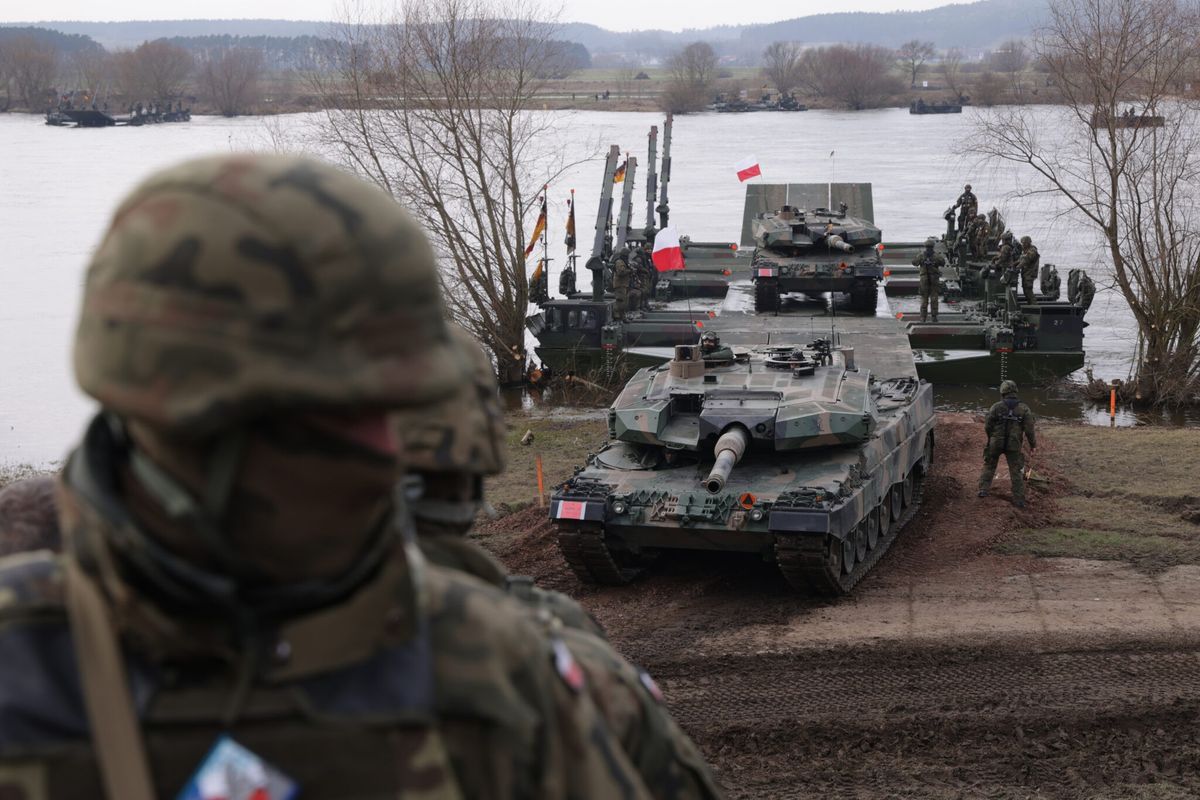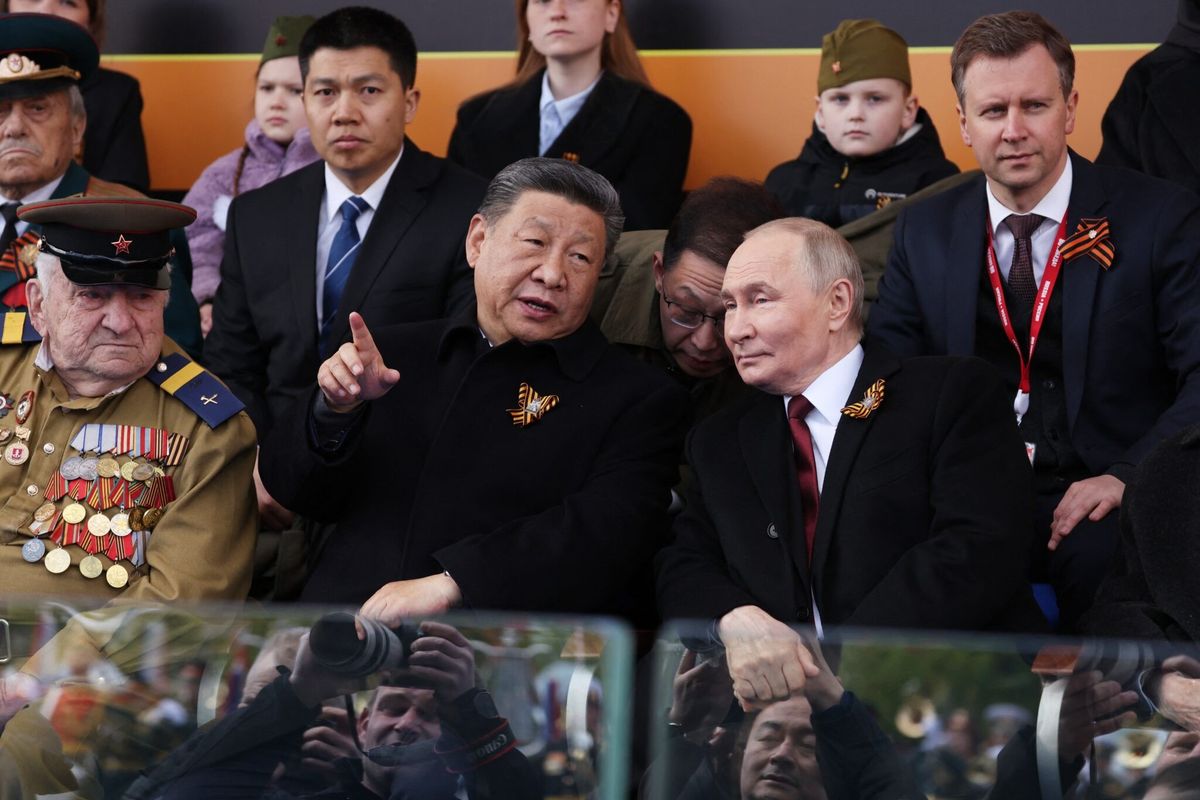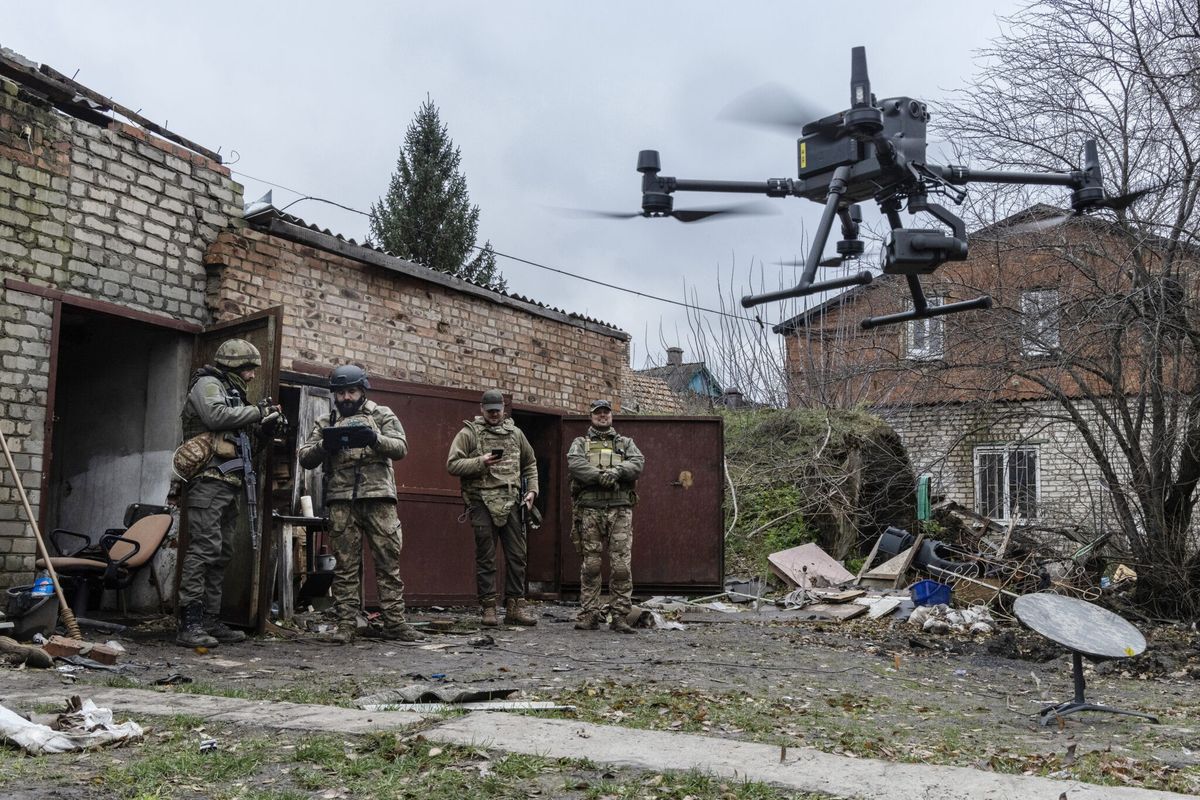OPINION - On the surface, Russian President Vladimir Putin projects calm and strength, as was evident as he hosted a Victory Day parade in Moscow’s Red Square with China’s leader in attendance. He touted the benefits of the Russia-China partnership, and said in a recent interview that “we have enough strength to bring what was started in 2022 to a logical conclusion.” But behind the optics, Russia is deep into the fourth year of a war it expected to win in weeks. Drones now strike Russian territory regularly, and the assassination of Russian generals has become almost routine. Meanwhile, Ukraine’s President Volodymyr Zelensky was recently spotted strolling through Kyiv’s city center, taking photos with civilians.
The deaths of Russian generals
On April 25, a car bomb in Moscow killed Yaroslav Moskalik, a high-ranking Russian general and deputy chief of the General Staff’s main operations directorate. Far from a peripheral figure, Moskalik played a central role in Russia’s war planning and personally briefed Putin on developments in Ukraine.
Ukraine’s Security Service (SBU) and the Defense Ministry’s intelligence agency (HUR) have actively targeted Russian officers implicated in war crimes, as well as collaborators in the Russian-occupied territories in Ukraine.
Lieutenant General Igor Kirillov, head of Russia’s nuclear, biological, and chemical defense forces, was killed in Moscow in December 2024, just one day after the SBU charged him in absentia. According to Ukrainian authorities, more than 4,800 instances of Russian chemical munitions use have been documented under Kirillov’s command since February 2022. One SBU official said Kirillov was a “war criminal” who “gave orders to use banned chemical weapons against the Ukrainian military,” warning that “Such an inglorious end awaits all who kill Ukrainians.”
Retired U.S. Lieutenant Colonel Alexander Vindman pointed out that the killing of Kirillov served as a message to both Moscow and Washington that Ukraine will continue fighting by all available means in its existential war.
Unable to stop Ukraine’s intelligence services, the Kremlin is forced to pretend everything is business as usual, showing that it has no real red lines. Russian intelligence is good at piecing together what happened, but not great at understanding what is coming. Ukraine’s intelligence seems to always be one step ahead, as it brings the war closer to the Kremlin.
Beyond the generals, Kyiv has eliminated dozens of high-profile figures involved in war crimes or atrocities against the country. This campaign predates the full-scale invasion; Ukrainian intelligence has been targeting Russian-backed militants in the occupied territories since Russia’s initial invasion in 2014.
The intersection of technology, defense, space and intelligence is critical to future U.S. national security. Join The Cipher Brief on June 5th and 6th in Austin, Texas for the NatSecEDGE conference. Find out how to get an invitation to this invite-only event at natsecedge.com
The view from Washington
U.S. officials are often uncomfortable with Ukraine’s actions. During the Obama administration, Ukraine’s intelligence services carried out a covert operation in occupied Crimea in 2016 that resulted in a firefight and the deaths of several Russian soldiers. One of the operatives involved was Kyrylo Budanov, now head of Ukraine’s military intelligence agency, HUR, who has since survived at least ten Russian assassination attempts.
The operation sparked backlash in Washington, where President Obama was deeply concerned about provoking escalation with Moscow. Then–Vice President Joe Biden warned Ukraine’s president that “it cannot come close to happening again.” Putin also warned, “We obviously will not let such things slide by.”
That same risk-averse mindset was often evident under President Biden, with U.S. officials at times paralyzed by fears of crossing Kremlin “red lines.” In response, Ukraine has taken matters into its own hands – showing that Russia’s so-called red lines can be crossed without triggering the consequences so many in the West still fear.
“Clearly, they’ve been effective in terms of tactical outcomes, many of the missions have succeeded, including high-profile assassinations beyond Ukraine's borders,” said Oleksandra Ustinova, a Ukrainian member of parliament. She noted that assassinations of alleged Russian war criminals have provided an important psychological boost for many Ukrainians.
“They’ve also shown the West that Ukraine’s capabilities go far beyond what we’ve traditionally been credited with,” said Ustinova. “Even if they deliver smaller-scale successes, they still play a vital role in the broader campaign.”
According to Ustinova, the goal is to expose cracks and vulnerabilities within Russia’s security and political structures, including both its military apparatus and its leadership. “Ultimately, all wars end with political decisions,” she said. “Military success shapes the political landscape, making it increasingly untenable for the aggressor to continue its campaign. That’s the broader strategic objective behind these operations.”
Kyiv believes that despite the West’s cautious approach, the idea that Russia will automatically escalate if Ukraine strikes inside Russian territory or even hits Moscow has been repeatedly disproved. “These assassinations help demonstrate that.”
Serhii Kuzan, chair of the Ukrainian Security and Cooperation Center and former adviser to Ukraine’s Ministry of Defense, pointed out that Ukraine isn’t just hunting down Russians across Russia, but around the world. In July 2024, Tuareg insurgents ambushed Russian Wagner troops and Malian soldiers, killing 84 Wagner fighters and 47 Malian troops.
The BBC reported that Ukrainian special forces had trained the separatists in the use of attack drones and provided intelligence to plan the strike. The Kremlin was rattled. Russian Foreign Ministry spokeswoman Maria Zakharova fumed, “Unable to defeat Russia on the battlefield, the criminal regime of Volodymyr Zelensky has opened a second front in Africa.”
“It appears that the insurgents received advance information and all necessary support to conduct a military operation against the Russian mercenaries,” said Kuzan. “However, there is no confirmed evidence that Ukraine was involved.” Ukrainian intelligence, he said, had reported as much.
“Still, it’s worth noting that among the Russian mercenaries killed were many criminals who had fought in Eastern Ukraine, including as far back as 2014,” said Kuzan.
Ukraine’s global pursuit of Russian targets often draws comparisons to Israel’s Mossad, and Ukrainian officials make no effort to downplay the parallel. "If you're asking about Mossad as being famous (for) ... eliminating enemies of their state, then we were doing it and we will be doing it. We don't need to create anything because it already exists," said Budanov.
The Moscow Times has reported that Russia’s security services tightly control every aspect of Putin’s life, including testing all his meals for poison with a portable lab. Even with personal chefs and transported groceries, a special team of officers still inspects every dish before he eats. During a March visit to Murmansk, his security team was seen physically searching honor guards for hidden weapons. Only a few days later, one of his presidential limousines caught fire in Moscow.
Even propagandists loyal to Putin are getting nervous. One of them, Zakhar Prilepin, warned recently that Ukraine will continue eliminating traitors and war criminals even after a peace deal is signed. In his view, the war against Ukraine must be fought to a “victorious end.” Other propagandists have shown visible signs of unease on TV, upon learning about Ukraine’s assassination campaign.
Few countries understand Russia better than Ukraine, which has been resisting Kremlin aggression for years. Much of the West’s conventional thinking about Moscow is outdated. Ukraine is now bringing the war to the Kremlin’s doorstep, and Western officials would be wise to take note.
The Cipher Brief is committed to publishing a range of perspectives on national security issues submitted by deeply experienced national security professionals. Opinions expressed are those of the author and do not represent the views or opinions of The Cipher Brief.
Have a perspective to share based on your experience in the national security field? Send it to Editor@thecipherbrief.com for publication consideration.
Read more expert-driven national security insights, perspective and analysis in The Cipher Brief














